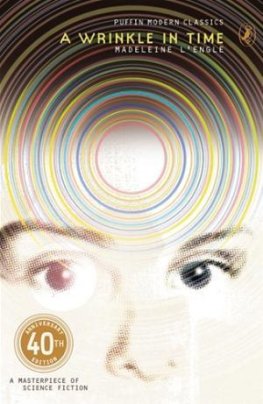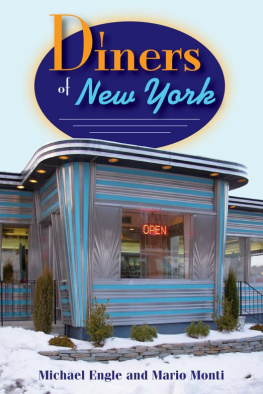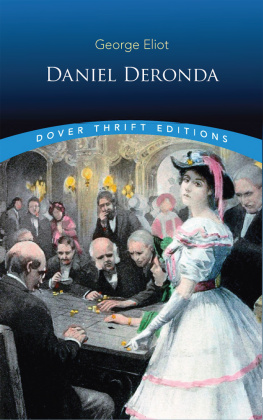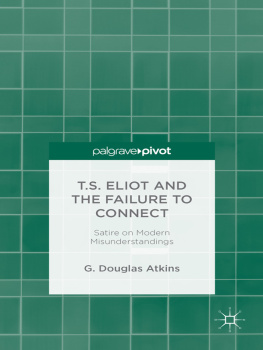The World of George Eliot
In 1857, Marian Evans allowed her friend and companion George Lewes to submit stories she had written to an influential publisher he knew named John Blackwell. The stories, which she titled Scenes of Clerical Life, were attributed to George Eliot, a pseudonym she had created for herself. Although she was already a published essayist and working editor, Marian was apprehensive about the project.
... If George Eliot turns out to be a dull dog and an ineffective writera mere flash in the panI, for one, am determined to cut him on the first intimation of that disagreeable fact, she wrote.
She neednt have worried. Far from a folly, Scenes of Clerical Life marked the birth of one of the worlds most influential fiction writers and the beginning of a literary legend.
Today, George Eliots work is found in most modern libraries and collectionsnot in dusty corners, but in well-traveled spotsa dog-eared paperback or threadbare hardcover exhausted by countless readers. Why has George Eliot endured? To her fans, George Eliot is a world as much as a writer. Her staying power is the uncanny reality of her characters inner lives. At her best, Eliot gives us characters whose worlds may be radically different from our own, but who struggle with the same dilemmas of intellect and spirit we ourselves tangle with daily.
The quotable heart of Eliot lies in the very personal commentary she adds to her stories. While many authors use an all-knowing voice to comment on the action, Eliots voice has a gentle empathy as well as a unique ability to take the situation so acutely observed to another level. She pinpoints common moments in all our lives and frequently adds a stunning glimmer of perspective. By the end of an Eliot novel, the reader feels a closeness and trust in this voice, like a good friend whose instincts rarely fail you.
This trust was a major reason for George Eliots enormous popularity in the 1860s and 70s. The height of Victorian England and its soul-rattling Industrial Revolution was a period of tumultuous social change. Eliots Victorian fans not only read her books, but wrote her countless letters, sharing their own fears and asking for sympathy and advice.
As the twentieth century got under way, Eliots work seemed to some readers to be speaking more of a life gone bycertainly not of the infinite possibilities of that auspicious century. George Eliot fell from favor for a time. But as readers became increasingly apprehensive of the approaching Age of Technology, Eliot began to ring remarkably true once more. Writing between world wars, Virginia Woolf called Eliots masterpiece Middlemarch one of the first English novels written for grown-up people. More grown-up doubts about the individuals place in perilous times soon emerged. As the century progressed, George Eliot was quoted, studied by scholars, and read with enthusiasm and identification. Her popularity hit rough waters again in the turbulent 1960s and 70s, when her ardent belief in basic social values ran counter to the revolutionary tenor of those times. Individualistic to the core, Eliot had been fundamentally leery of movements, even early feminism.
But interest in Eliot rekindled as the century waned and continues as a new one begins because as we look for a moral and spiritual path through our present, some of the questions examined in Eliots world remain uncannily contemporary. Eliots passionate mission as arbiter between our personal journeys and societys demands and expectations continually grows more poignant. Could Marian Evans have dreamt of more for George Eliot? She would be proud.
The Real George Eliot
So who was this remarkable Marian Evans and how did she become the moral and spiritual conscience of a generation? So many generations? Her life reads like her novels: a story of great and ambitious aspirations, played out on a small, constricting stage. Like the stories of George Eliot, Marian Evans was deceptively simple and genuinely complex.
She was born Mary Anne Evans, in England, in late 1819 (she always said 1820), the youngest of a large, rather rambling family (her father had married twice). Robert Evans, her father, managed a large estate in Warwickshire for a noble family, and was well respected. His job made him something of a broker between classes. He knew and worked with the dairymen, farmers, weavers, and ribbon makers of the community as well as the aristocrats and clergy. Mr. Evans had a social fluency rare for England at that time and, as his daughter, so did young Mary Anne. While making the rounds with her father, shed get treats from the aristocrats and their servants, and gossip from the dairymaids and field hands. While other Victorian writers saw an England of two major classesthe rich and poorMary Anne would one day write of an England peopled with a myriad of subtle classes and distinctions, based fundamentally on this childhood look at sociology. From her perspective, simple spirits could envision limitless horizons and even the privileged led constricted lives. Her beloved father showed her the territory.
But Mary Anne and her father were on a collision course. Mr. Evans was not an intellectual particularly and neither, by all sketchy reports, was his second wife and Mary Annes mother, Christiana. Still, they sent Mary Anne to the best local schools. These werent much of a challenge to the extremely bright and restless child. Under the tutelage of a soon-beloved local teacher named Maria Lewis, eager Mary Ann became devoutly Evangelical, and the e in her Anne a frivolity. It was dropped. (Much comment has been made of her habit of revising her name, seemingly to signpost momentous changes in her life.) Like most of the projects of Mary Anns passionate life, she went for Evangelism wholeheartedly. She soon forbade herself even minor fun, as well as novels and music. She became rather a stick in the mud about anybody else having a good time either. All of this was undoubtedly trying at times, but conflicts over Evangelism were not when she and her father would come to blows.
After a few years, Mary Anns nimble mind had pretty much run through the major Evangelical quandaries and begun to question its confident absolutes. It was then, when Mary Ann was only sixteen, that her mother became ill and died and Mary Anns schooling was dropped so that she could take over the household. Her father indulged her in weekly Italian and German lessons and supported her voracious reading habit, but he expected her to run the household and care for his needs. Mary Anns older siblings were mostly gone from home by then, and even her idolized brother Isaac was about to marry. The aging Mr. Evans had begun giving over his duties to Isaac, looking to help his son and rest on his considerable local laurels. Soon it made sense for Mary Ann and her father to give the homestead, Griff, to Isaac and his new bride and move to a smaller house in nearby Coventry. It made sense, but it was painfully lonely at first for Mary Ann. Her father became active in the local church, at least in part to help their social connections.












